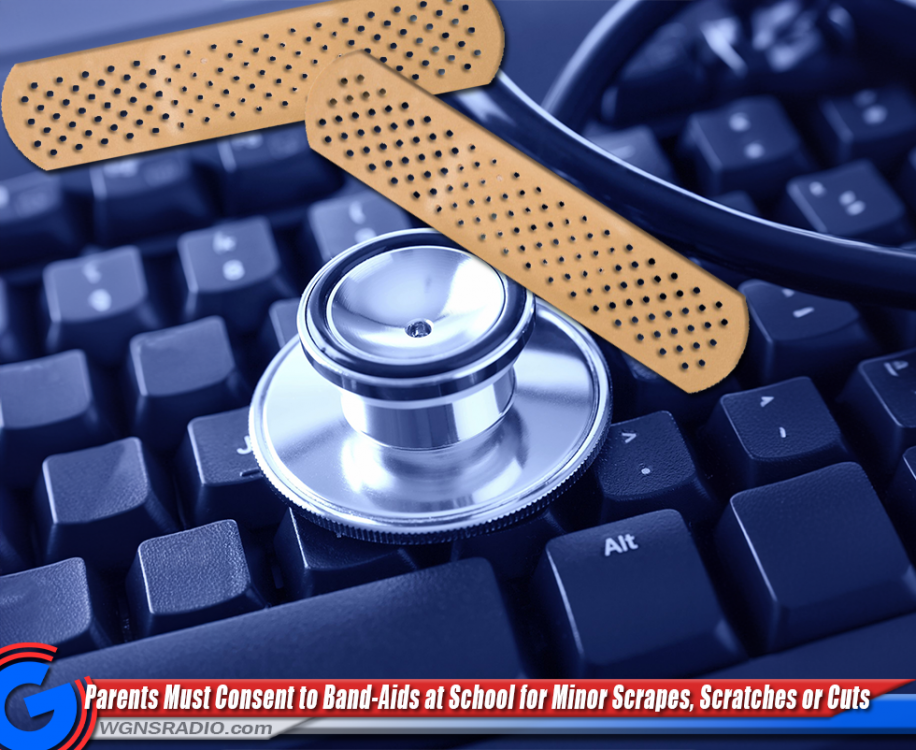TENNESSEE - As the State Board of Education seeks feedback on the English Language Arts standards, parents are learning about a new requirement affecting school medical care. Under the "Families’ Rights and Responsibilities Act," which went into effect on June 3, 2024, it looks as if parents must now give permission before school officials can administer even minor first aid to their children.
This law means that if a student gets a small scratch or bump at school, teachers or school nurses need parental consent before they can apply a band-aid or perform any number of minor treatments. The Act requires that any government body, including public schools, must obtain parental approval before treating, diagnosing, or giving medication of any sort to a minor.
In practice, this means that if a first grader scrapes their knee or a high school student cuts their elbow, the school must wait for the parent’s consent before providing most if not all of the basic first aid that was once administered. Although the law is intended to protect parental rights and ensure children are not harmed, it could lead to delays in treatment if consent is not given quickly. For this reason, most schools around the state are attempting to have a signed consent form in office, before any medical care is needed.
There are exceptions for emergencies, but overall, the law emphasizes the need for total parental control over a child's medical treatment at school. This could potentially result in delays in addressing minor injuries if proper consent is not obtained promptly or if able - beforehand.
SUMMARY OF BILL (HB 2936 - SB 2749): Enacts the Families' Rights and Responsibilities Act. Establishes that the liberty of a parent to the care, custody, and control of the parent's child, including the right to direct the upbringing, education, health care, and mental health of the child, is a fundamental right.
Prohibits a governmental entity from substantially burdening the fundamental rights of a parent as provided under this section unless the government entity demonstrates that the burden, as applied to the parent and the child, is required by a compelling governmental interest of the highest order and is the least restrictive means of furthering that compelling governmental interest.
Prohibits a public employee, other than law enforcement personnel, from encouraging or coercing a child to withhold information from the child's parent. Prohibits a public employee from withholding from a child's parent information that is relevant to the physical, emotional, or mental health of the child.
Enables a parent who prevails in a proceeding to enforce the legislation against a government entity to receive declaratory relief, injunctive relief, and compensatory damages, including reasonable costs and attorney's fees from a court of competent jurisdiction.
Prohibits a government entity, a healthcare provider, or any other person from knowingly taking certain actions with regard to a minor without first obtaining the consent of a parent of the minor, including providing medical treatment, prescribing or administering drugs or medication, or rendering psychological or counseling services. Establishes certain exemptions.
Establishes a violation of such prohibition is an unlawful practice and is grounds for the offending healthcare provider's licensing authority to suspend, revoke, or refuse to renew the healthcare provider's license or take other disciplinary action allowed by law. Authorizes a parent to bring a civil cause of action to recover compensatory damages, punitive damages, and reasonable attorney's fees, court costs, expenses, and any other appropriate relief against the person, government entity, or healthcare provider alleged to have violated the prohibition. Requires a court to notify the appropriate regulatory authority and the Attorney General and Reporter (AG) by mail, upon a final judgment that a healthcare provider knowingly violated the prohibition. Requires a civil cause of action to be brought within one year from the date of discovery of the violation.
- See the actual bill (HERE), a bill that is raising eyebrows of some parents and email WGNS your thoughts. Our email address is News@WGNSradio.com. If we use your comment in this news story or others that focus on this issue, WGNS will not use your name.





